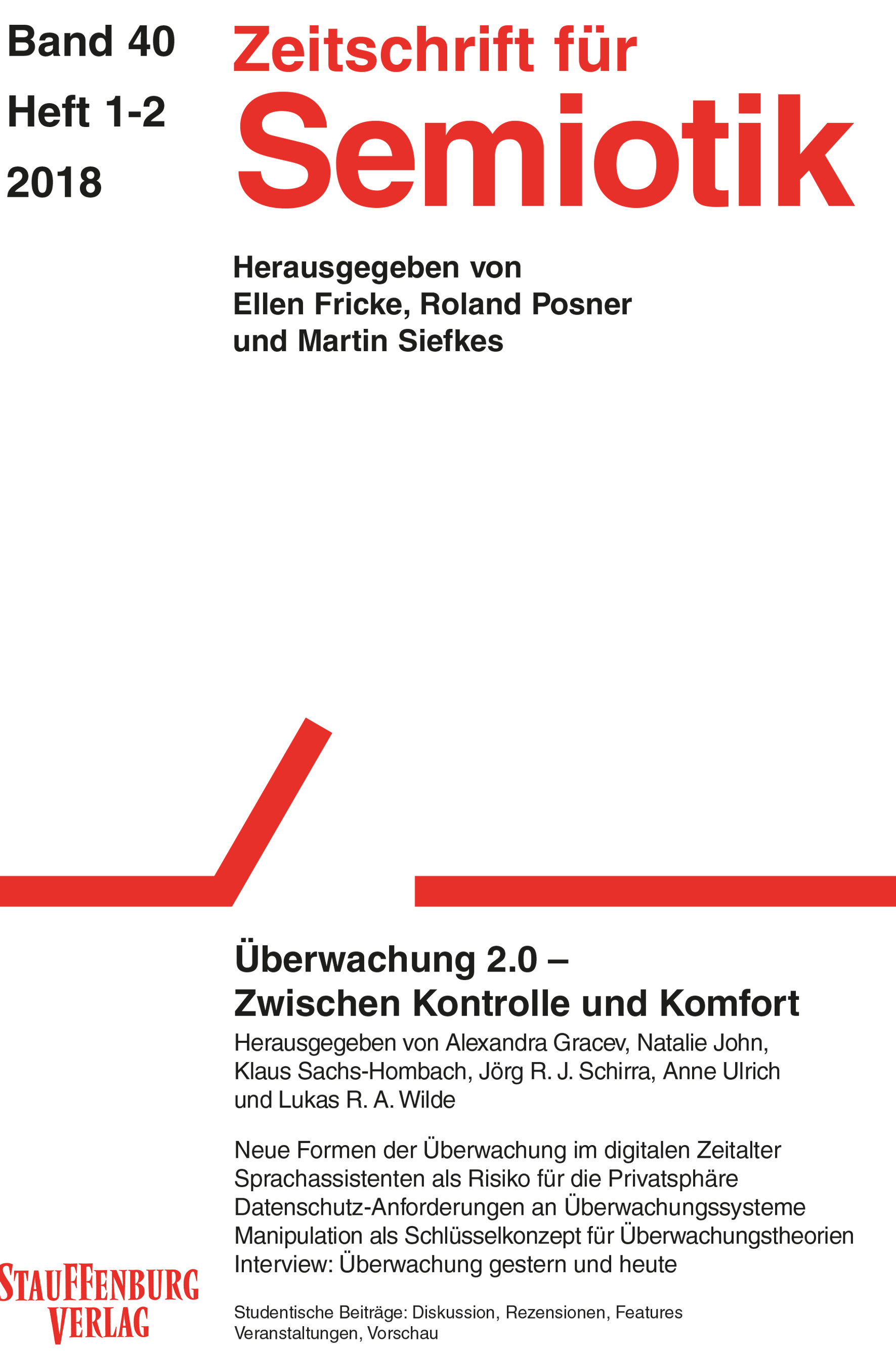Beobachten, wie die App uns beobachtet
DOI:
https://doi.org/10.14464/zsem.v40i1-2.697Schlagworte:
Selbstverbesserung, Datensammlung, Nutzerverhalten, Apps, Beobachtung, Digitalisierung, Ethik, Michel Foucault, SelbstmanagementAbstract
Im Rahmen eines Seminars zum Thema Überwachung hat sich ein Kurs von Medienwissenschaftsstudierenden aufgemacht, die Welt dieser Apps zu erkunden. Eine Woche lang haben sie beobachtet und dokumentiert, wie eine bestimmte App ihr Leben beobachtet und dokumentiert. Sie haben nachgefragt, was dabei mit ihren Daten passiert, und überlegt, was das für unsere Gesellschaft bedeutet. Im Mittelpunkt stand die Frage, wer es ist, der am Ende die Kontrolle gewinnt. Hier sind drei ihrer Geschichten.
Downloads
Veröffentlicht
Ausgabe
Rubrik
Lizenz
Copyright (c) 2024 Yunzhi Chen, Karolina Hess, Kristie Pladson, Corina Stratmeyer

Dieses Werk steht unter der Lizenz Creative Commons Namensnennung 4.0 International.
Copyright for articles published in this journal is retained by the authors. The content is published under a Creative Commons Licence Attribution 4.0 International (CC BY 4.0). This permits use, distribution, and reproduction in any medium, provided the original work is properly cited, and is otherwise in compliance with the licence.


